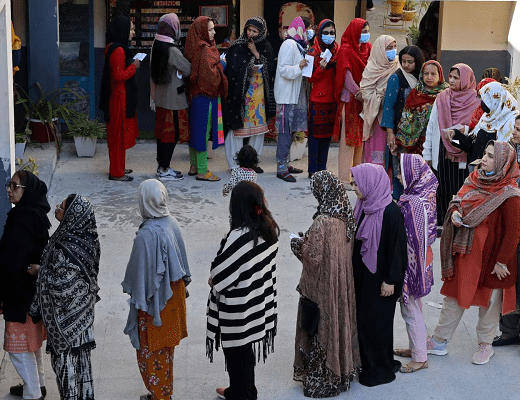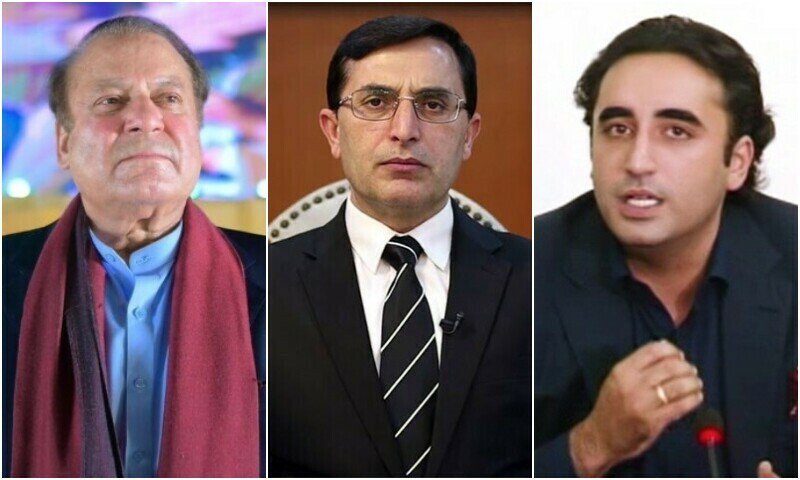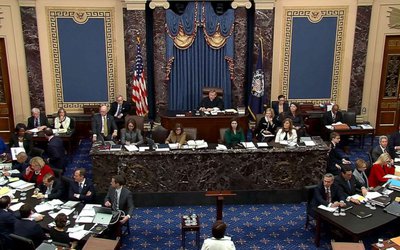
The results of the eagerly-awaited Feb 8 general elections have sparked concerns about the potential for achieving political and economic stability after a long wait of over a year in the country.
Policymakers are also wondering whether the new government in waiting can maintain the economic stability achieved by the caretaker government in six months.

The split mandate may hinder economic stability in the next few months, but experts believe the Special Investment Facilitation Council (SIFC) could play a crucial role in implementing politically unpopular economic policies. Many experts anticipate the next government will seek a new IMF accord. This would require harsh economic decisions to stabilize the economy for at least three years.
The question is whether the Pakistan Peoples Party (PPP), which made practically impossible promises to supply free electricity to people up to 300 units per month to win votes, will accept these difficult options. The Pakistan Muslim League-Nawaz (PML-N) also promised 200 units and a 20-30 per cent price decrease.
Political parties face challenges in fulfilling ambitious promises
All provincial chief ministers and the Army Chief are SIFC members. Amid all the visible achievements of the caretaker government, there is a palpable sense of an “invisible hand” emerging as a pivotal force in shaping the country’s current economic landscape. The influence of the invisible hand remains crucial, regardless of who assumes the position of finance minister. This sentiment is shared by all former finance ministers who served in the PDM government and the subsequent caretaker government.
Former finance minister Miftah Ismail said a new IMF deal is essential. He believes Pakistan’s economic revival depends on structural reforms like privatization. Mr Ismail says the new coalition government must agree on a basic economic program. Three major parties — PML-N, PPP, and PTI — are leading the race for the most seats to form a coalition government in the Centre. It will be clear which party will form government in the next few days.
The manifestos of the three political parties did not mention a fresh IMF programme. Acting US Deputy Secretary Nuland and Pakistan’s caretaker Foreign Minister Jalil Abbas Jilani in August discussed various issues, including ongoing engagement with the IMF. Many observers see this as a strong message from Washington, suggesting Pakistan should contemplate a new accord after its new government takes office.
All three parties have made ambitious economic promises in their manifestos. Three crucial areas demand focused attention to understand the practical realities amidst the political rhetoric.
PML-N lowered the caretaker government’s $100bn export target to $60bn. In five years, IMF predictions suggest less than $40bn. The past three months saw 26pc year-over-year export growth. The caretaker government has mostly reinstated exporter incentives from the PTI’s three-and-a-half years. The result is clear.
Past PML-N policies prioritize budgetary discipline over exports. During his brief stint, Commerce Minister Gohar Ejaz promoted exports from the country. He said exports may rise further if the government discounts power. Export-led growth should continue under the coalition, Mr Ejaz said, adding that the SIFC will continue this policy of export-led growth. Pakistan can’t get payback loans through new loans. Therefore, the upcoming government will have to enhance manufactured exports.
Tax administration reform is a priority for the new government. Statistics show that tax exemptions and poor compliance cost Rs5.8 trillion, or 6.9pc of GDP. By FY27, the tax-to-GDP ratio needs to be raised to 20pc, up from 8.5pc. Another problem is that the three political parties have superficial tax collection enhancement goals. Tax increases are necessary when the country’s debt exceeds its revenue.
However, former economic adviser Dr Ashfaq Hassan Khan believes SIFC can significantly affect the desired outcomes in tax reforms and increase revenue. Khan says SIFC facilitates investment and emphases political stability to attract domestic and international investments. Conflicting and divided mandates do not predict economic stability, according to the economic adviser.
There is a clear difference in the approach of PML-N and PPP when it comes to the privatization of state-owned enterprises (SOEs). This is a long-standing issue that has remained unresolved for decades. PML-N and PPP must find common ground on the privatization plan. The caretaker government has already initiated a privatization strategy.
The SIFC and the invisible hand continue to be the driving forces behind structural reforms, regardless of the interests of political elites.
Source: Dawn Daily
- USAID programs officially suspended
- Jul 03, 2025
- Thailand’s Constitutional Court suspended PM Paetongtarn Shinawatra
- Jul 02, 2025
- Trump says Israel ‘agreed to necessary conditions to finalize’ 60-day Gaza ceasefire
- Jul 02, 2025
- US Senate passes Trump's massive tax bill
- Jul 02, 2025
- Putin touts rebuilding in seized Ukrainian regions
- Jul 01, 2025















